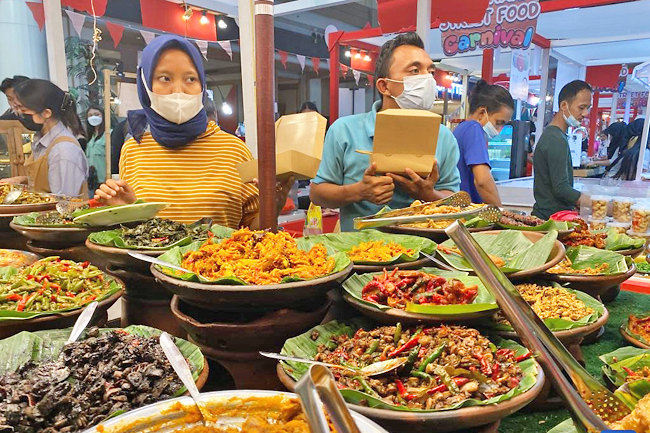BERNAMA – Director of Financial Services and SOEs of the National Development Planning Agency (Bappenas) Rosy Widyawati stated that the consumption of halal products at the global level in 2027 is projected to reach USD3.1 trillion.
“Muslim spending on syariah products, such as food and beverages, halal fashion, halal cosmetics, and others, is very promising, with an estimated value of USD3.1 trillion in 2027,” Widyawati said in a statement this week.
In a live broadcast on YouTube titled ‘Acceleration Towards Golden Indonesia 2024 with MEKSI’, she stated that the government is optimising the potential of the syariah economy through the preparation of the Indonesian Syariah Economic Masterplan (MEKSI) 2025-2029.
According to Widyawati, the development of the syariah economy is important as a new economic engine to realise an average national economic growth of six to seven per cent to become a developed country. To achieve the target, she underscored the need for Indonesia, as the world’s largest Muslim country, to become a producer and not just a consumer.
She remarked that the largest exporters of halal products currently are countries with no Muslim majority such as Brazil, China and India.
“In the future, we must become producers and be able to export,” Widyawati stressed. In addition to preparing for the 2025-2029 MEKSI, she highlighted that the government is developing the syariah economy as stipulated in law number 59 of 2024 on the National Long-Term Development Plan (RPJPN) for 2025-2045 on September 13.
In the RPJPN document, the development of the syariah economy is a separate priority programme to accelerate the progress of the sector, including through downstreaming of the halal industry and strengthening micro, small and medium enterprises to boost export value, she stated.
Widyawati noted that programme development to boost Muslim tourist numbers by improving Muslim-friendly tourism facilities and infrastructure is also considered important.
“We also have a fashion sector. This line must be supported because we believe fashion can contribute a lot,” she added.




















































